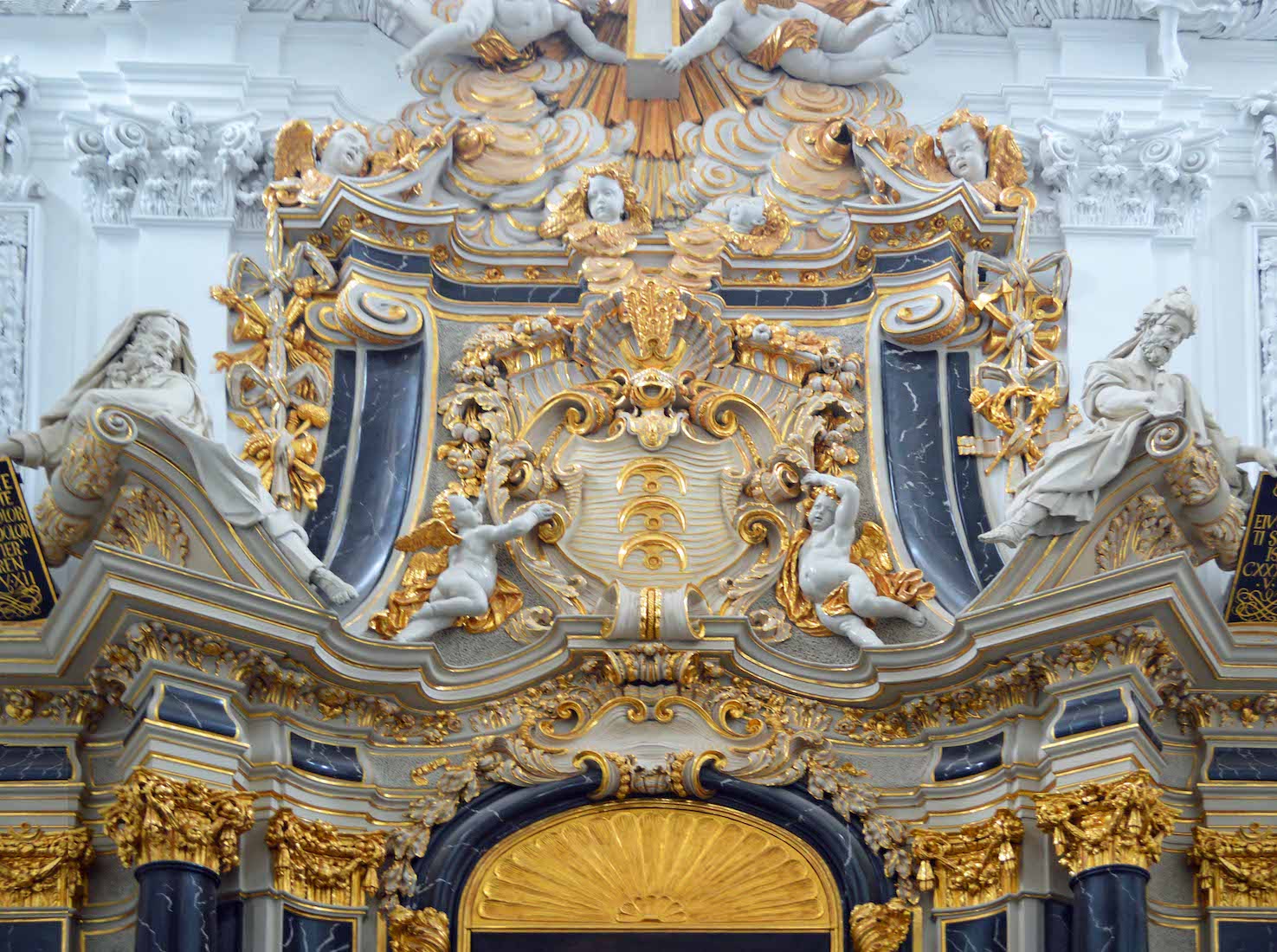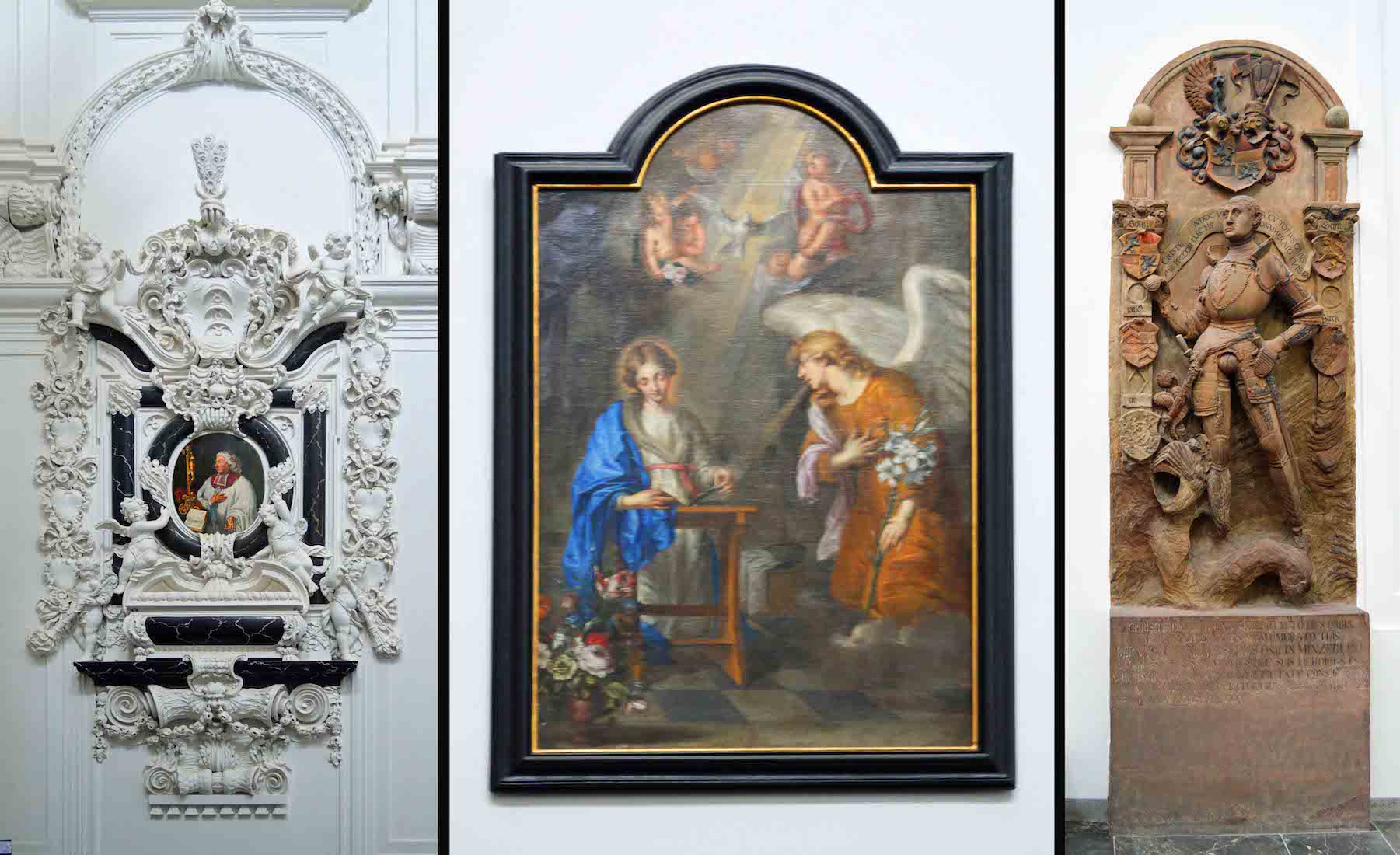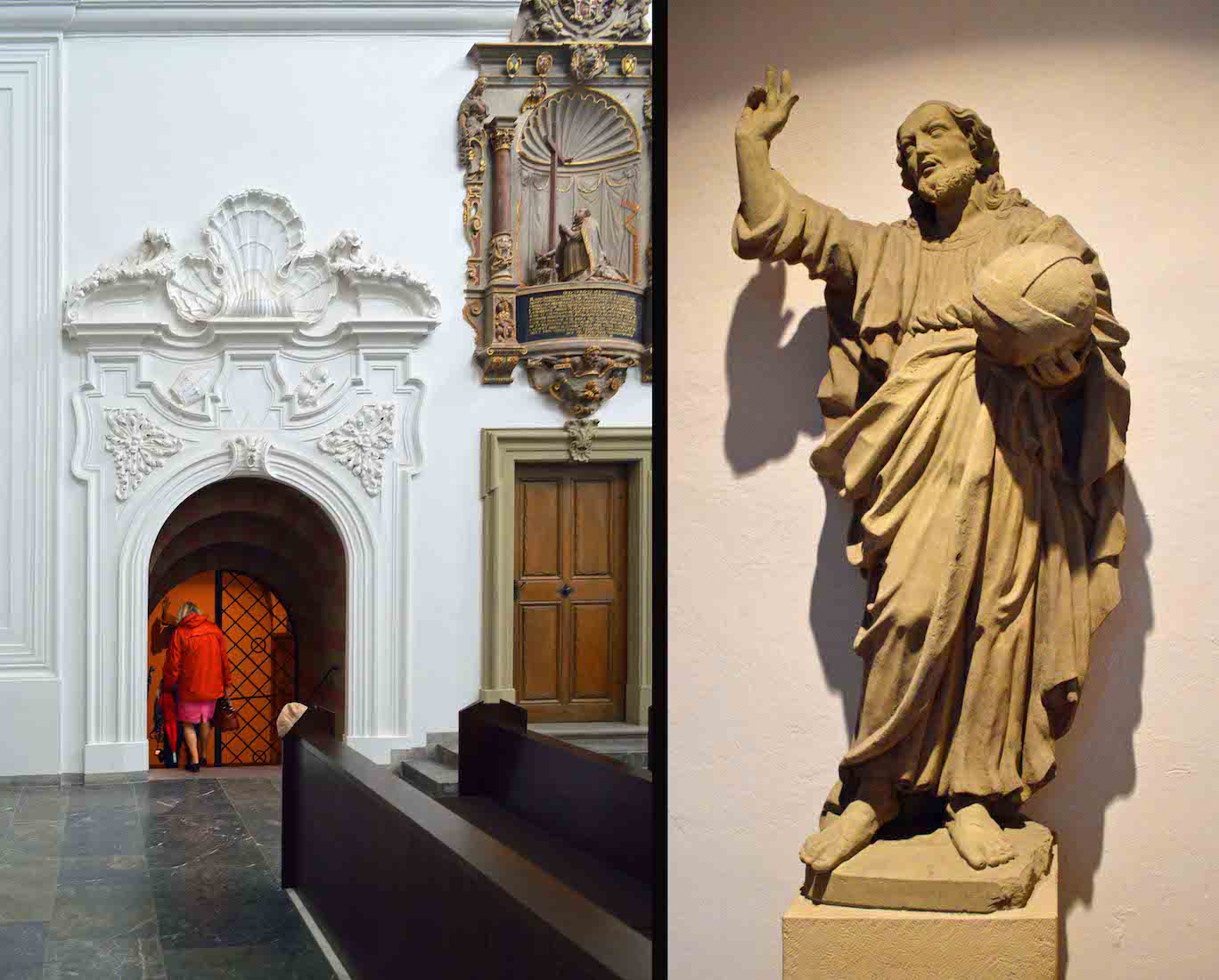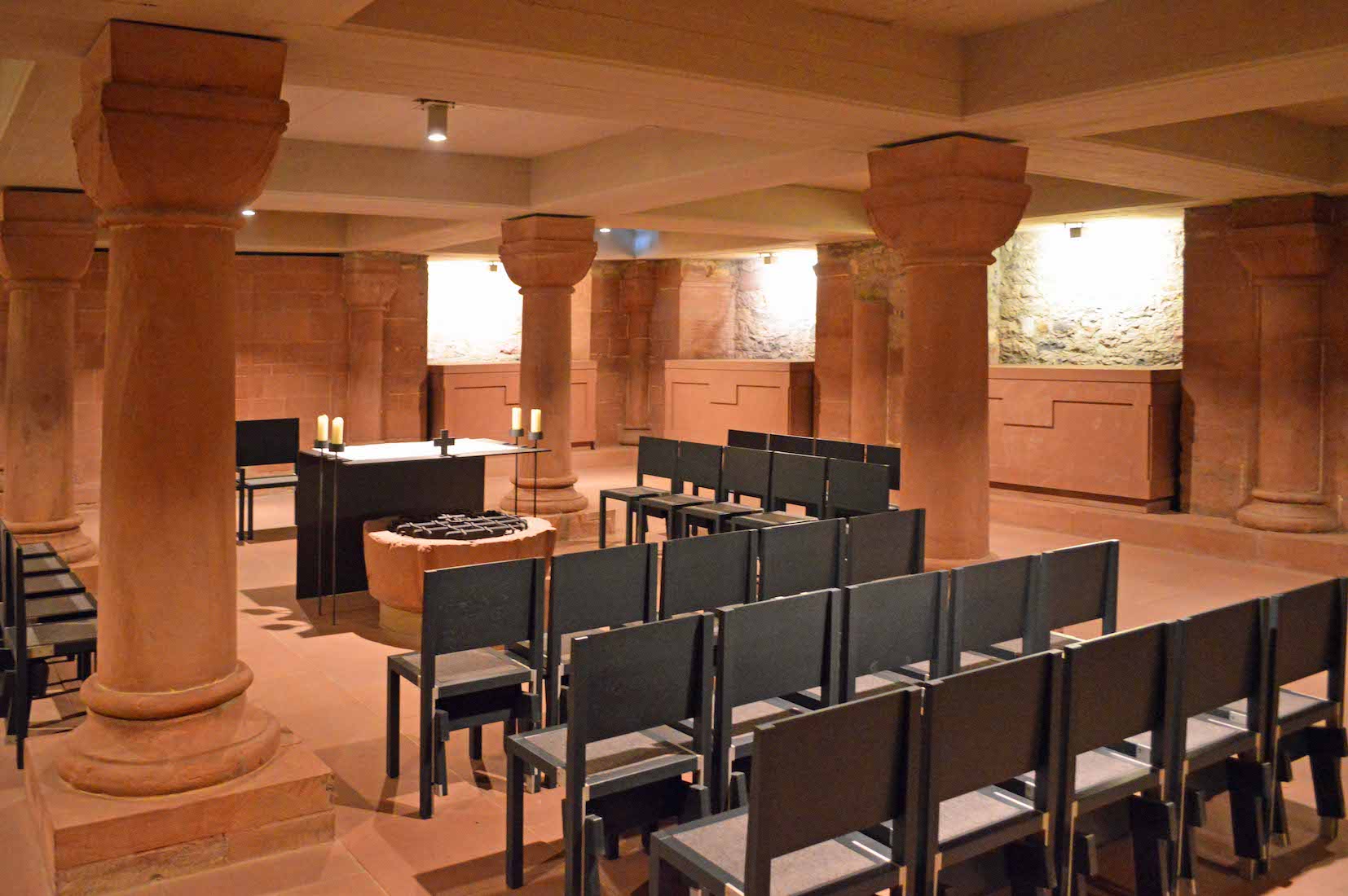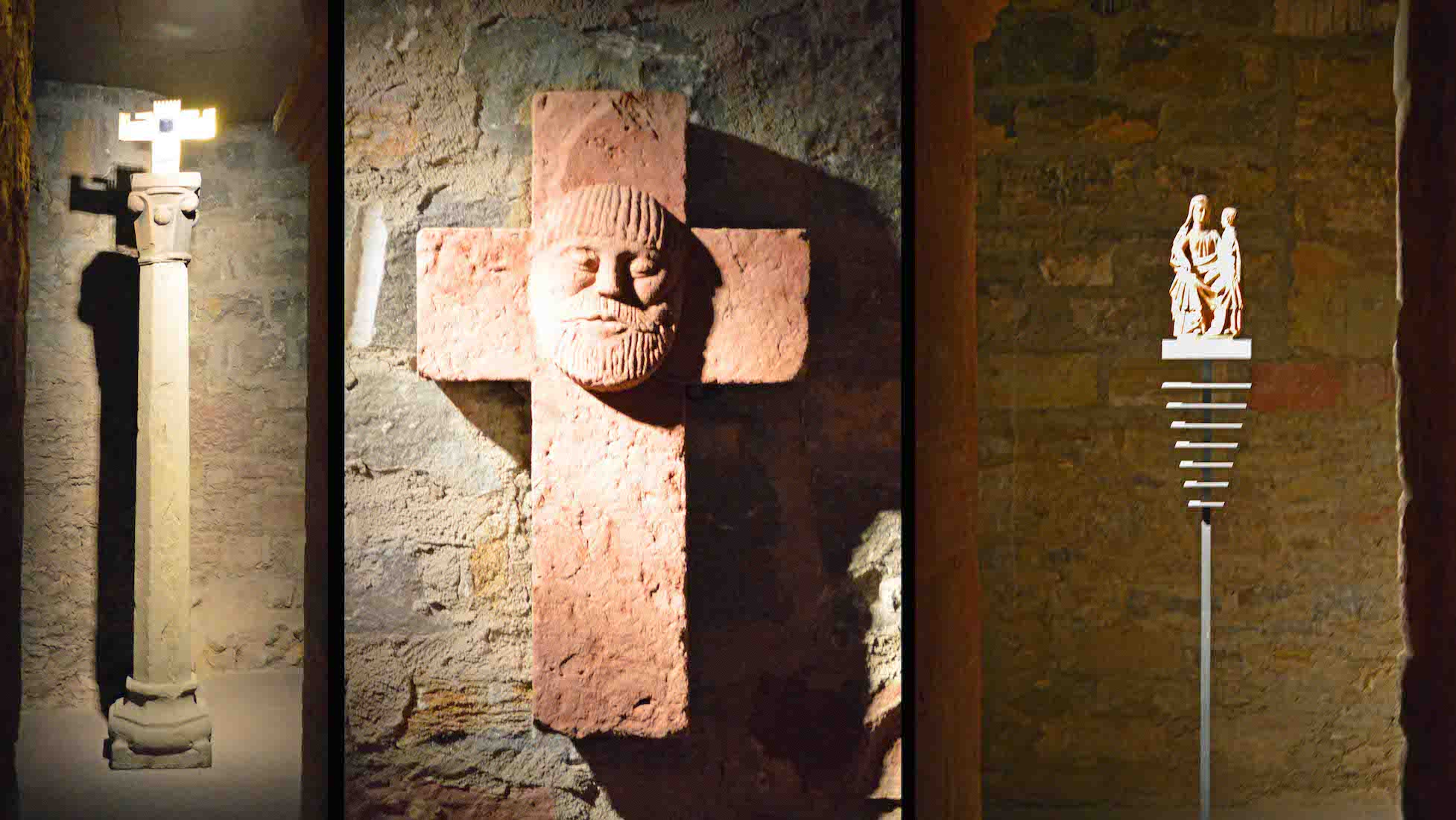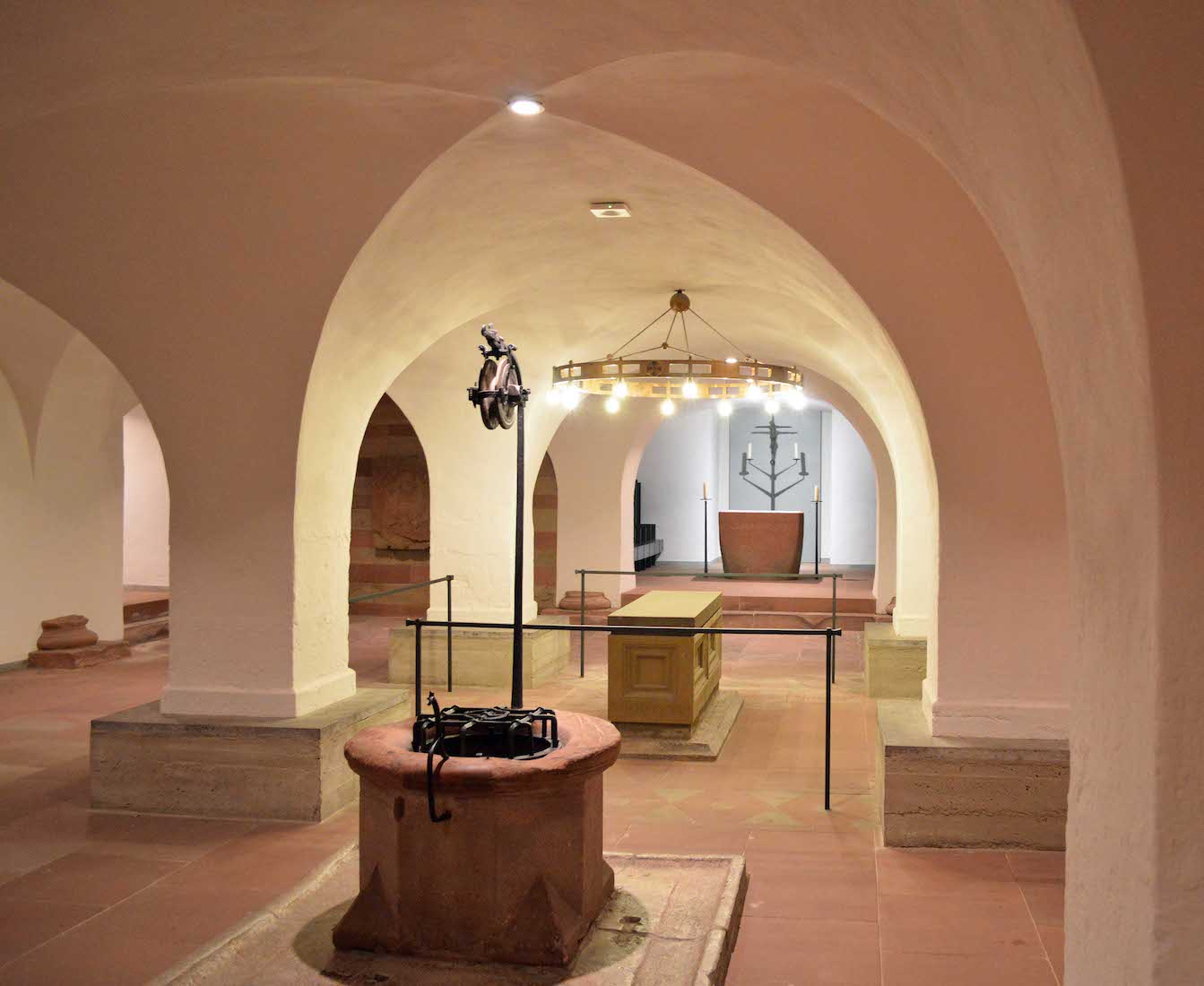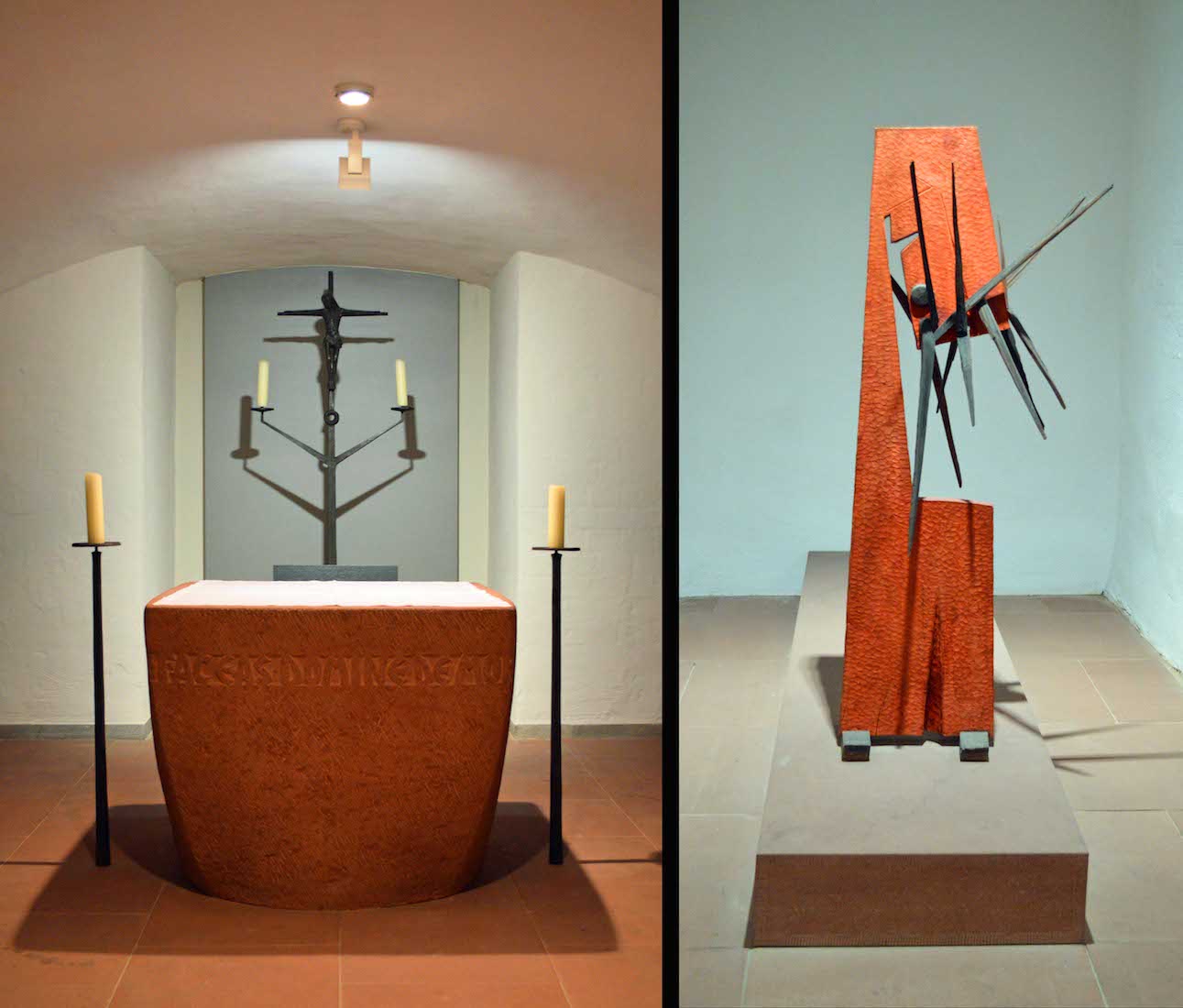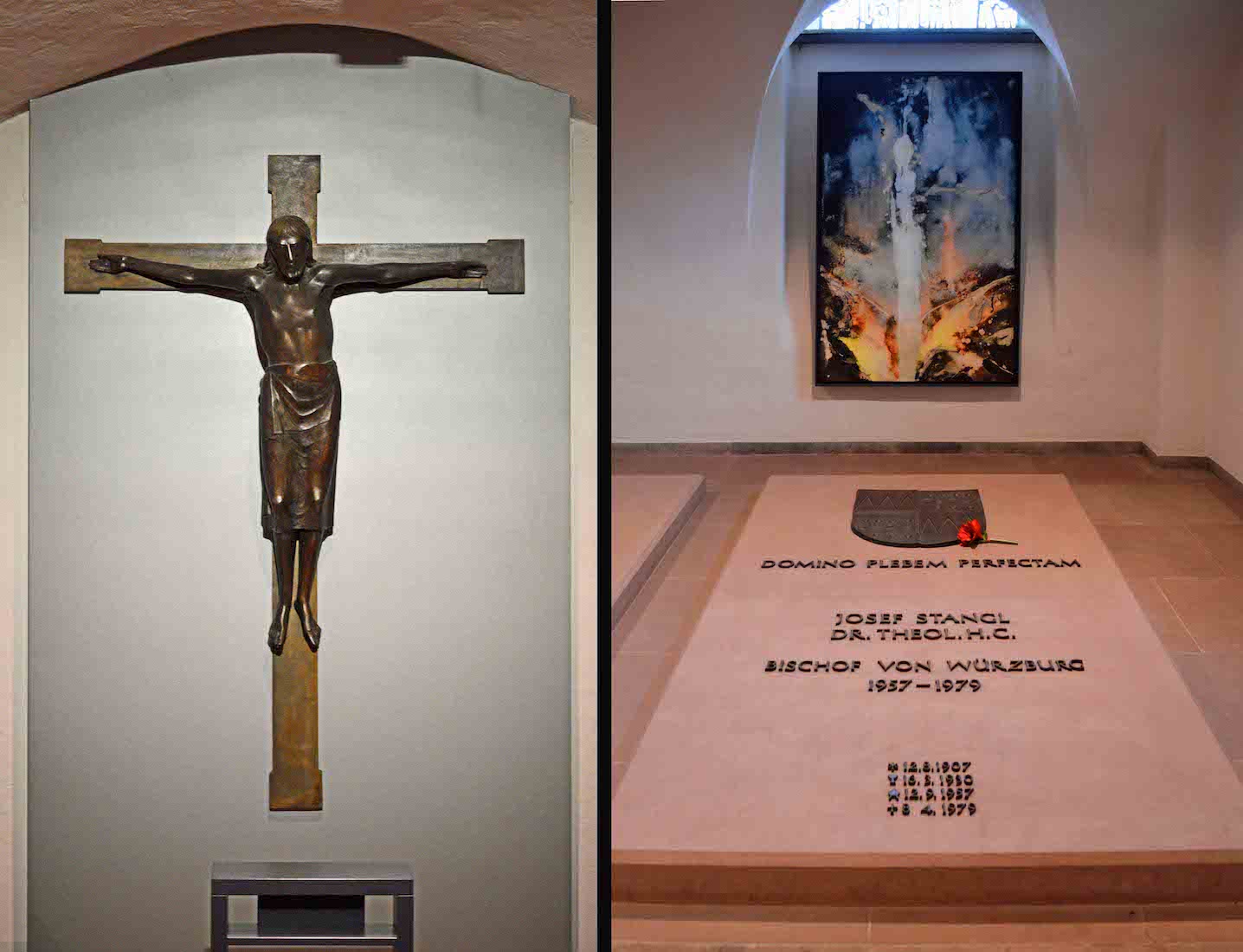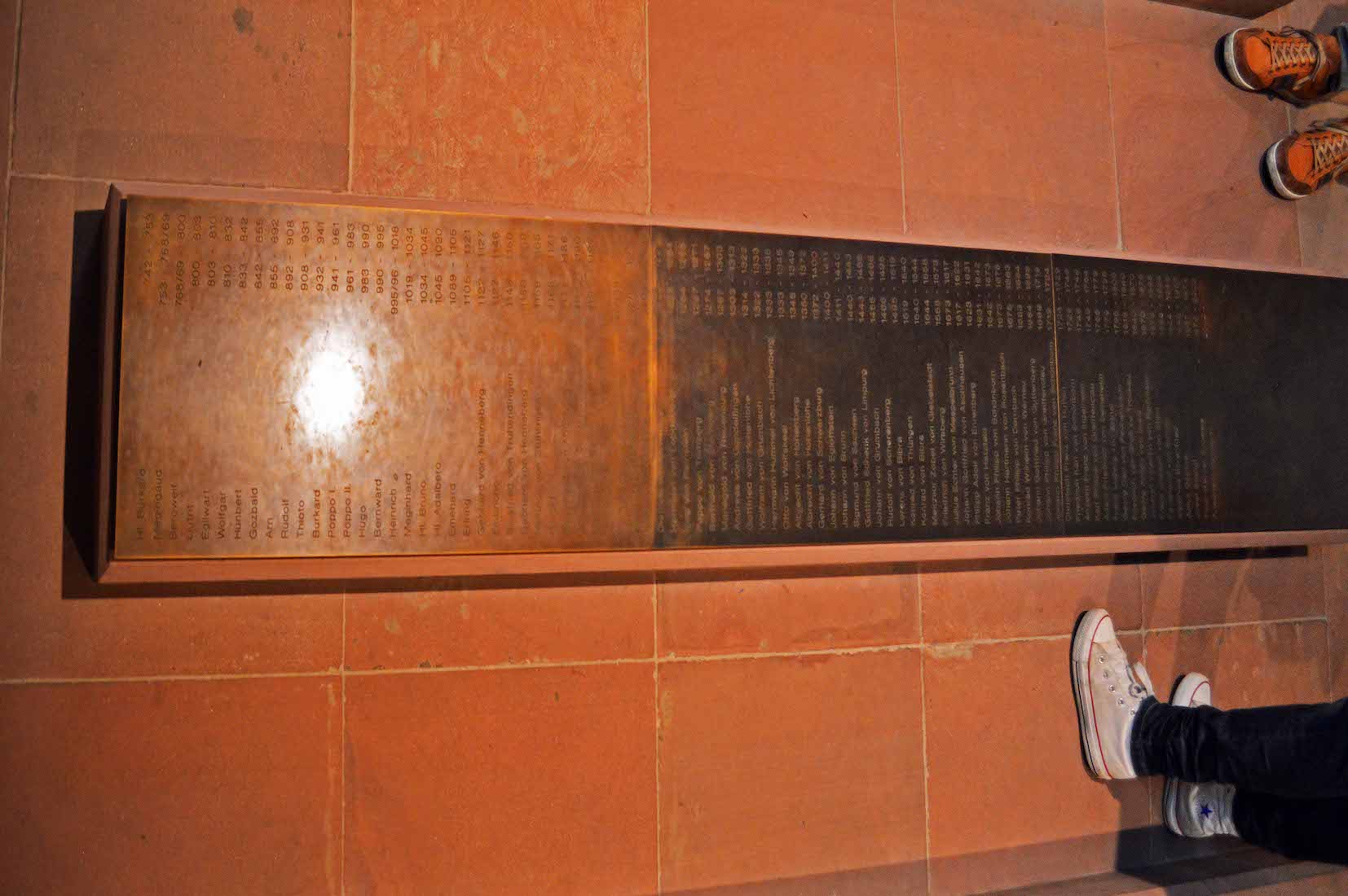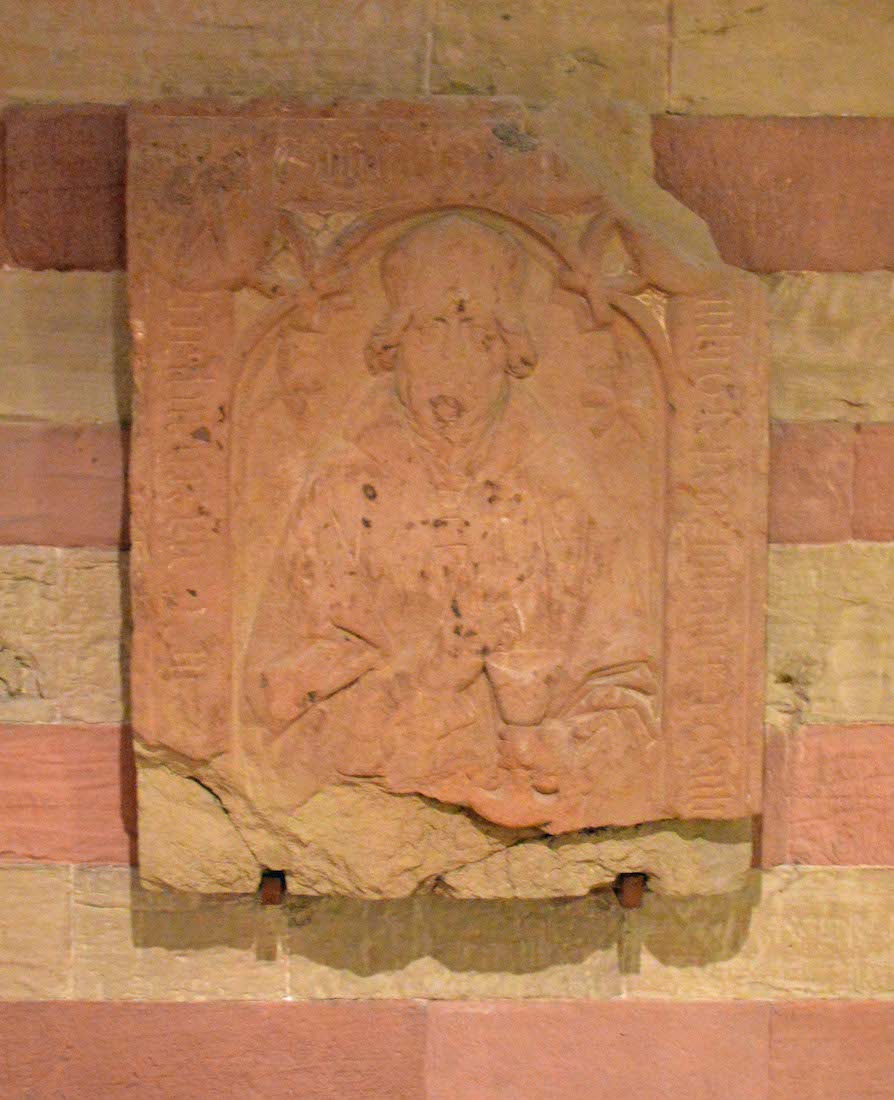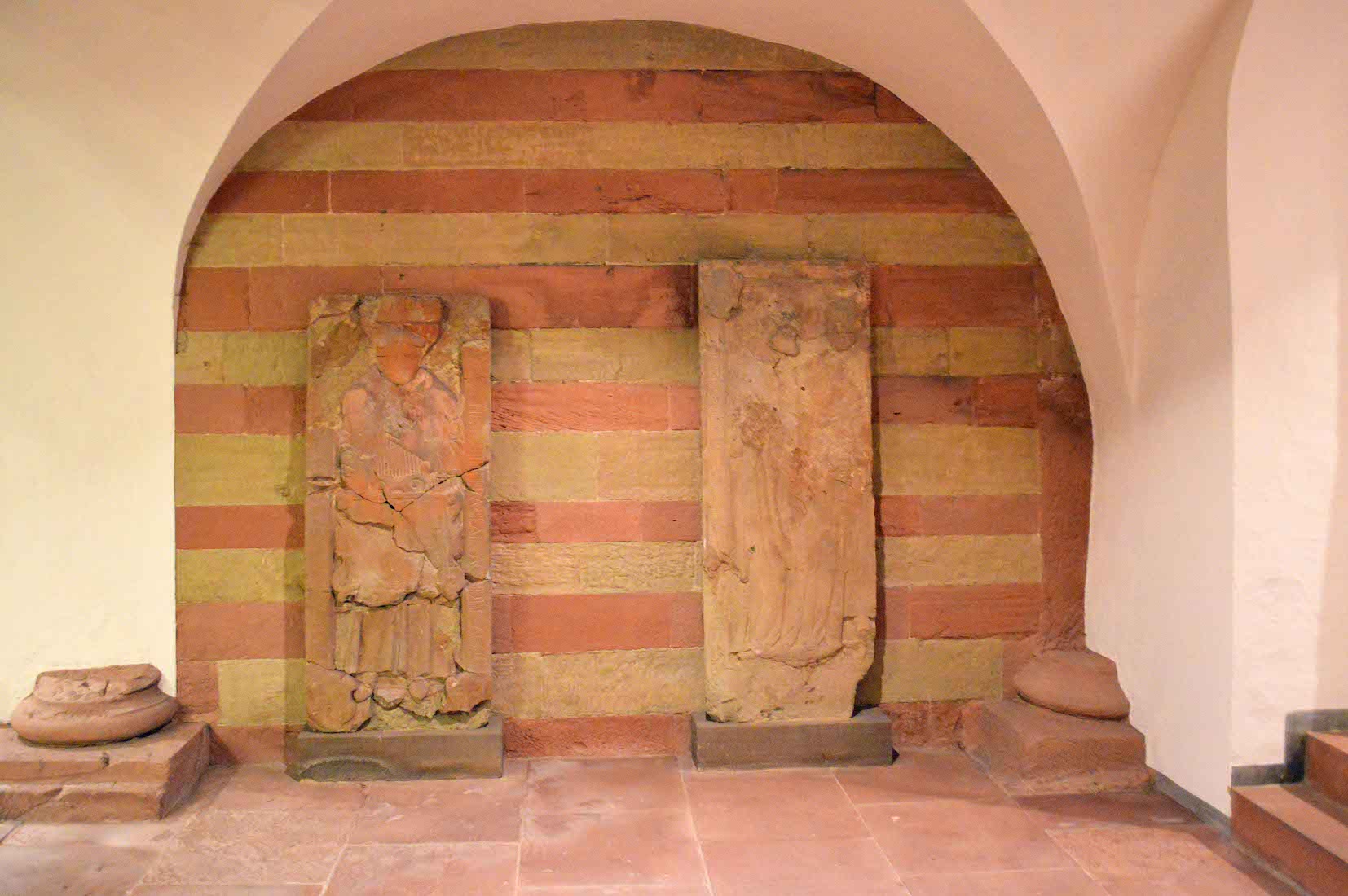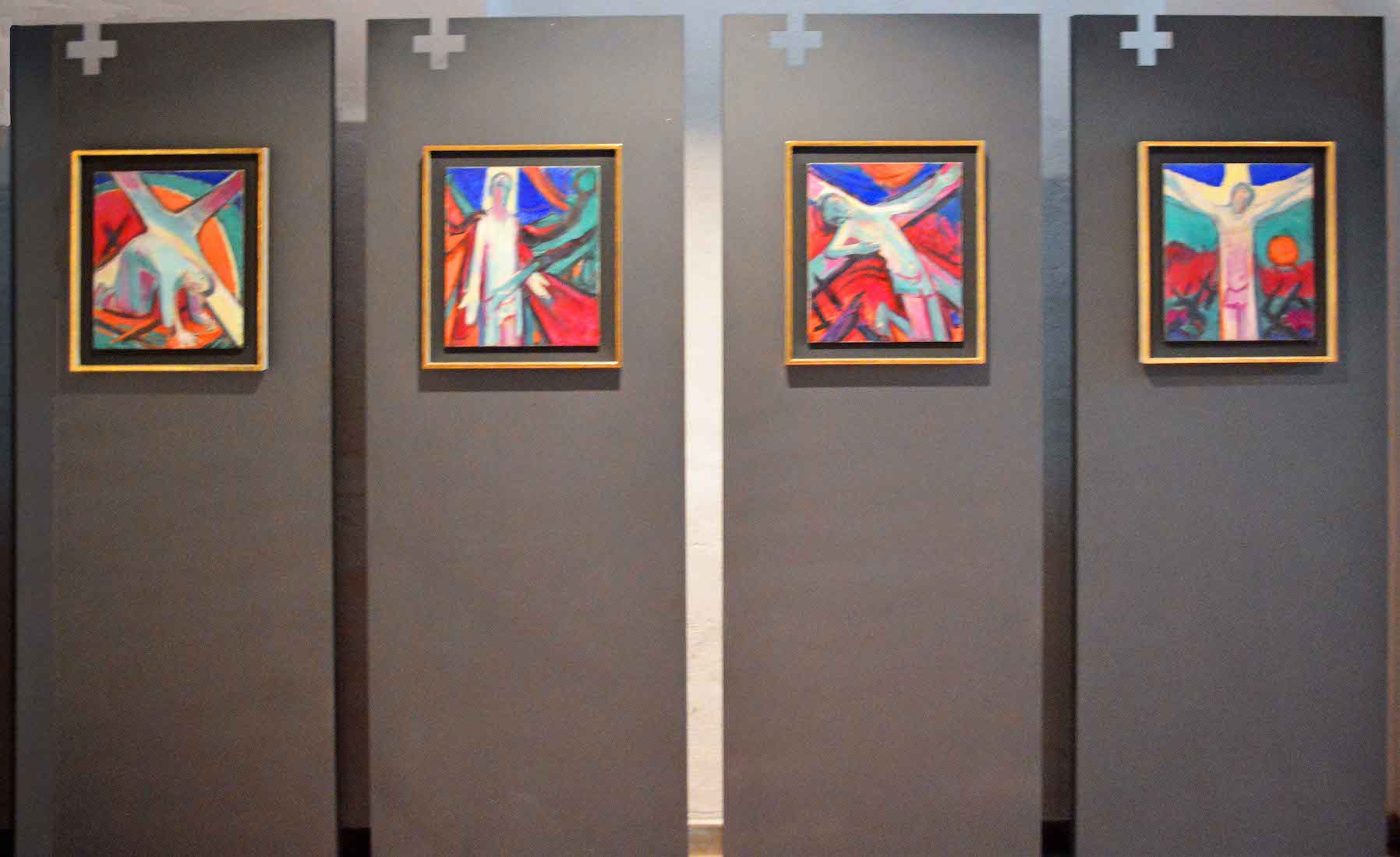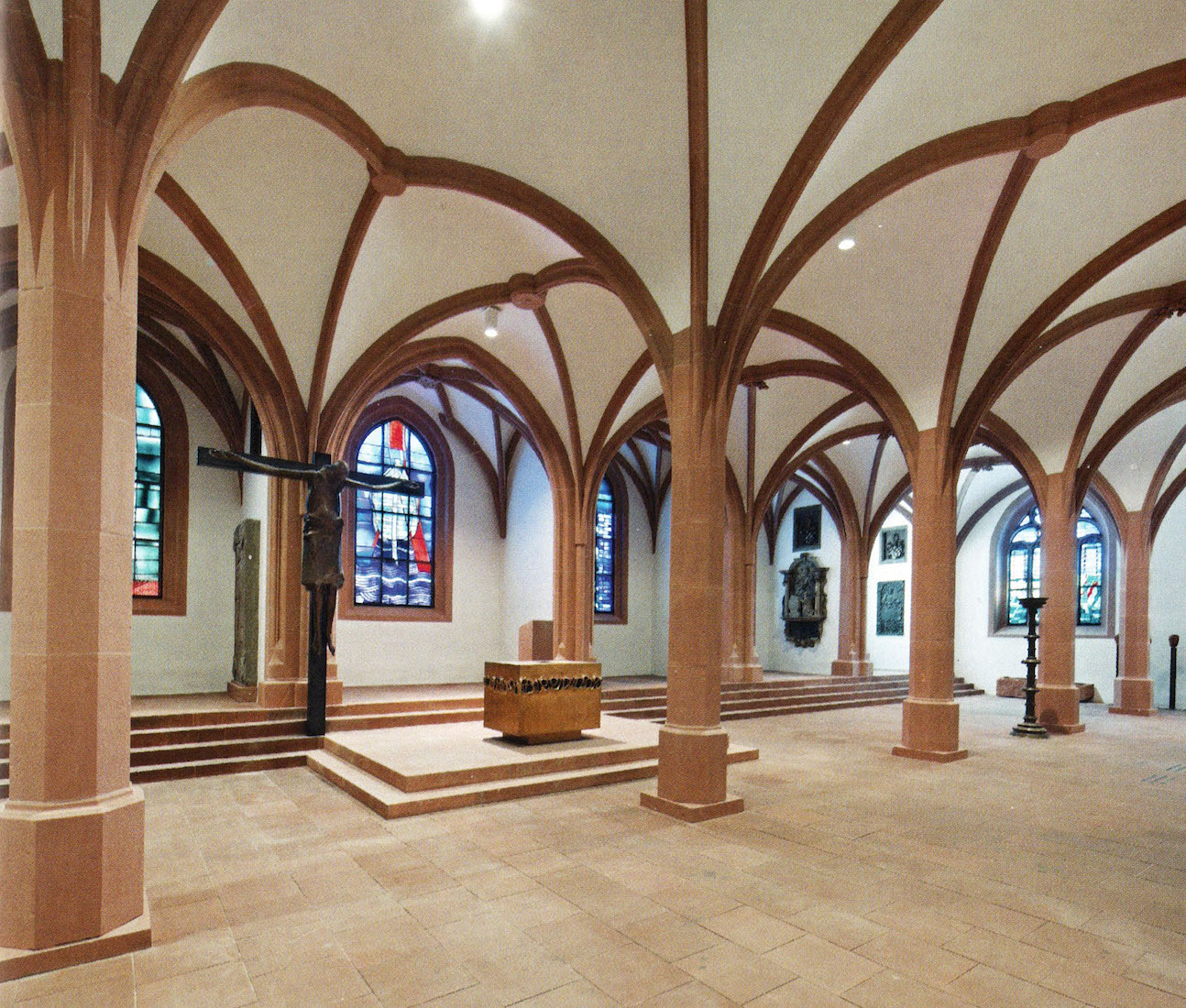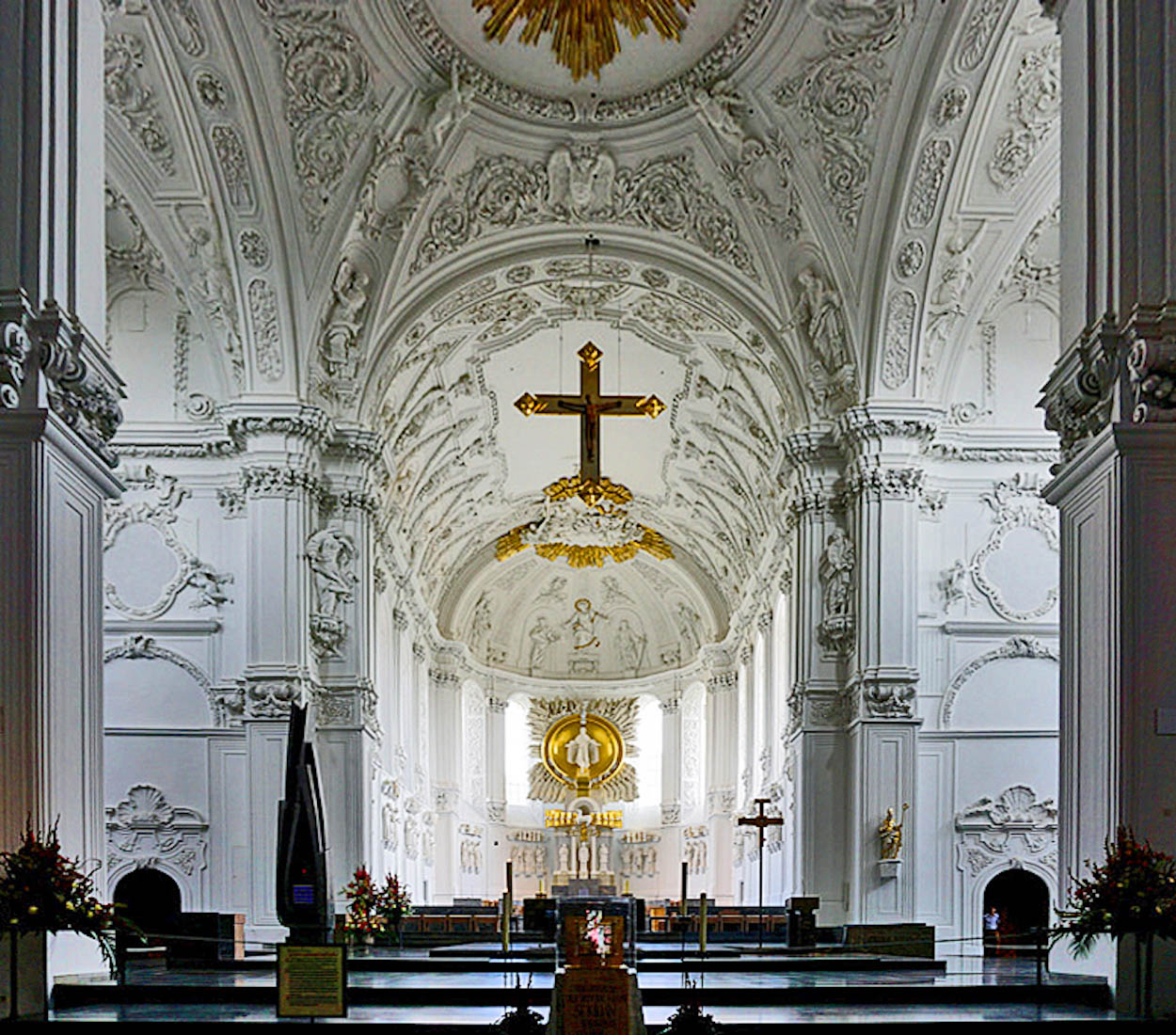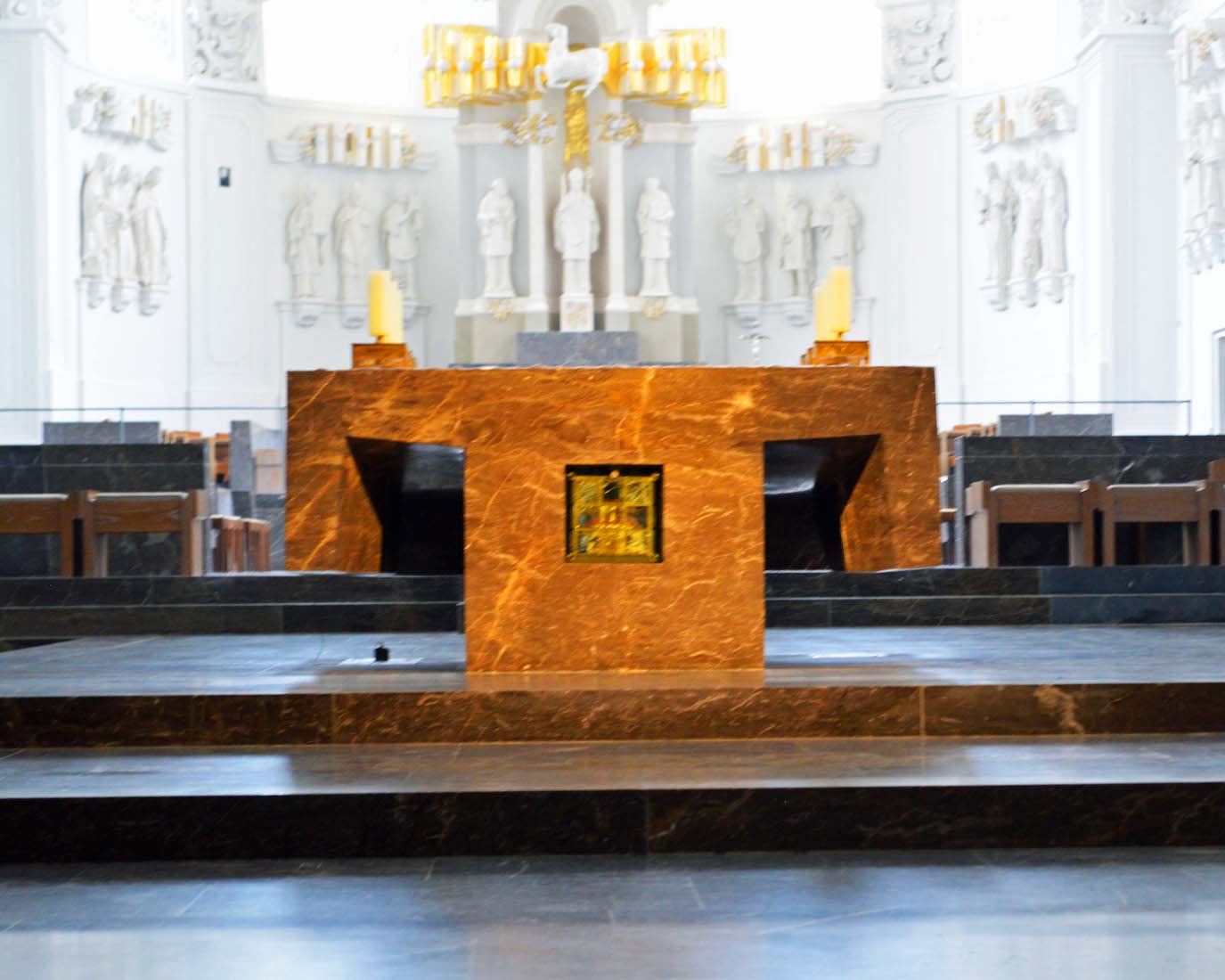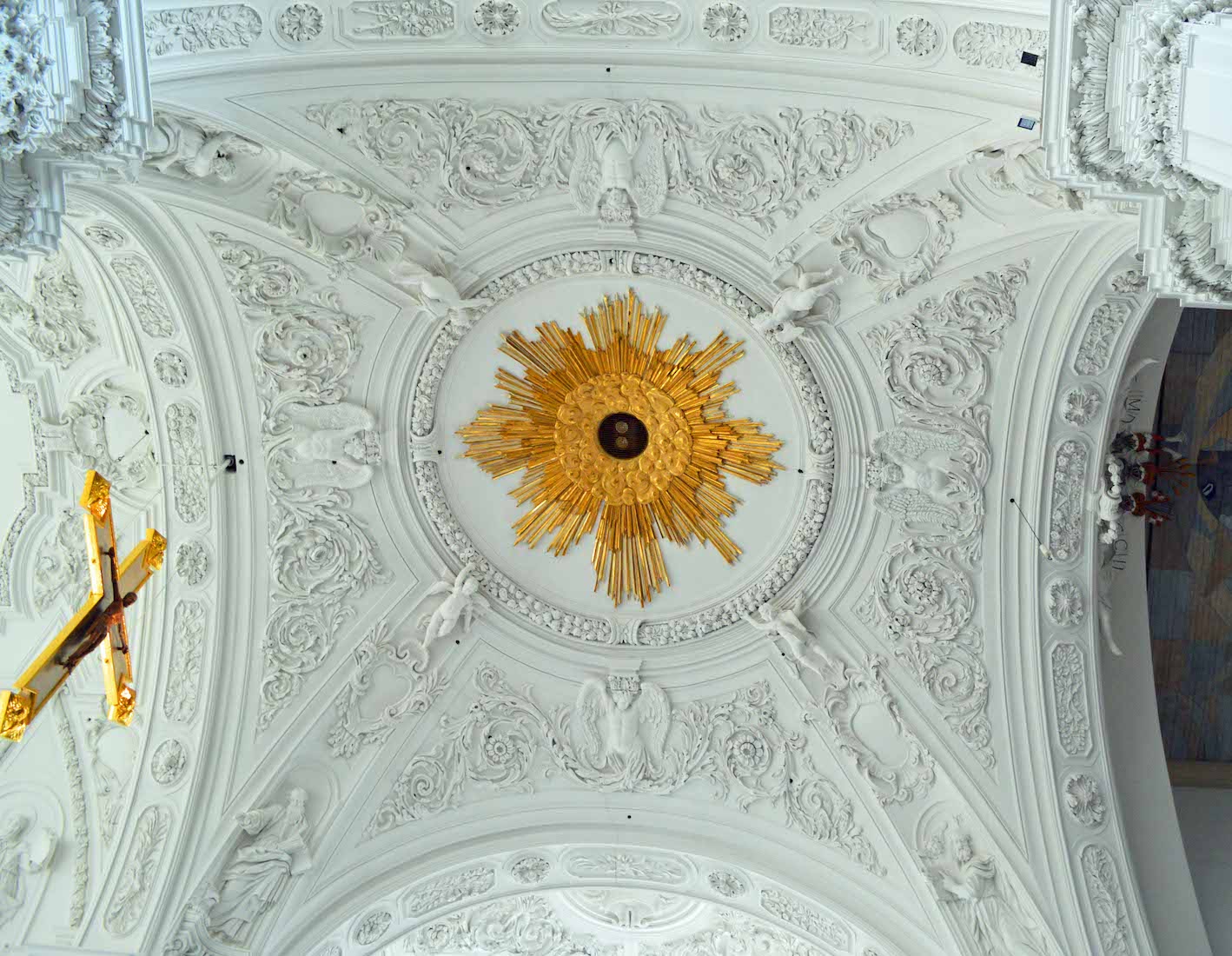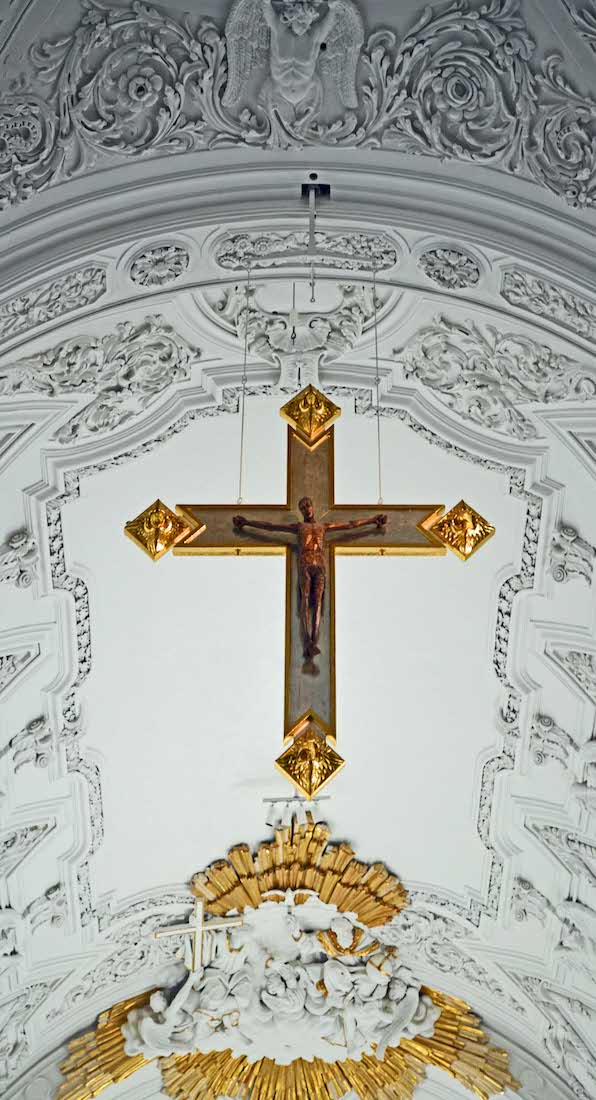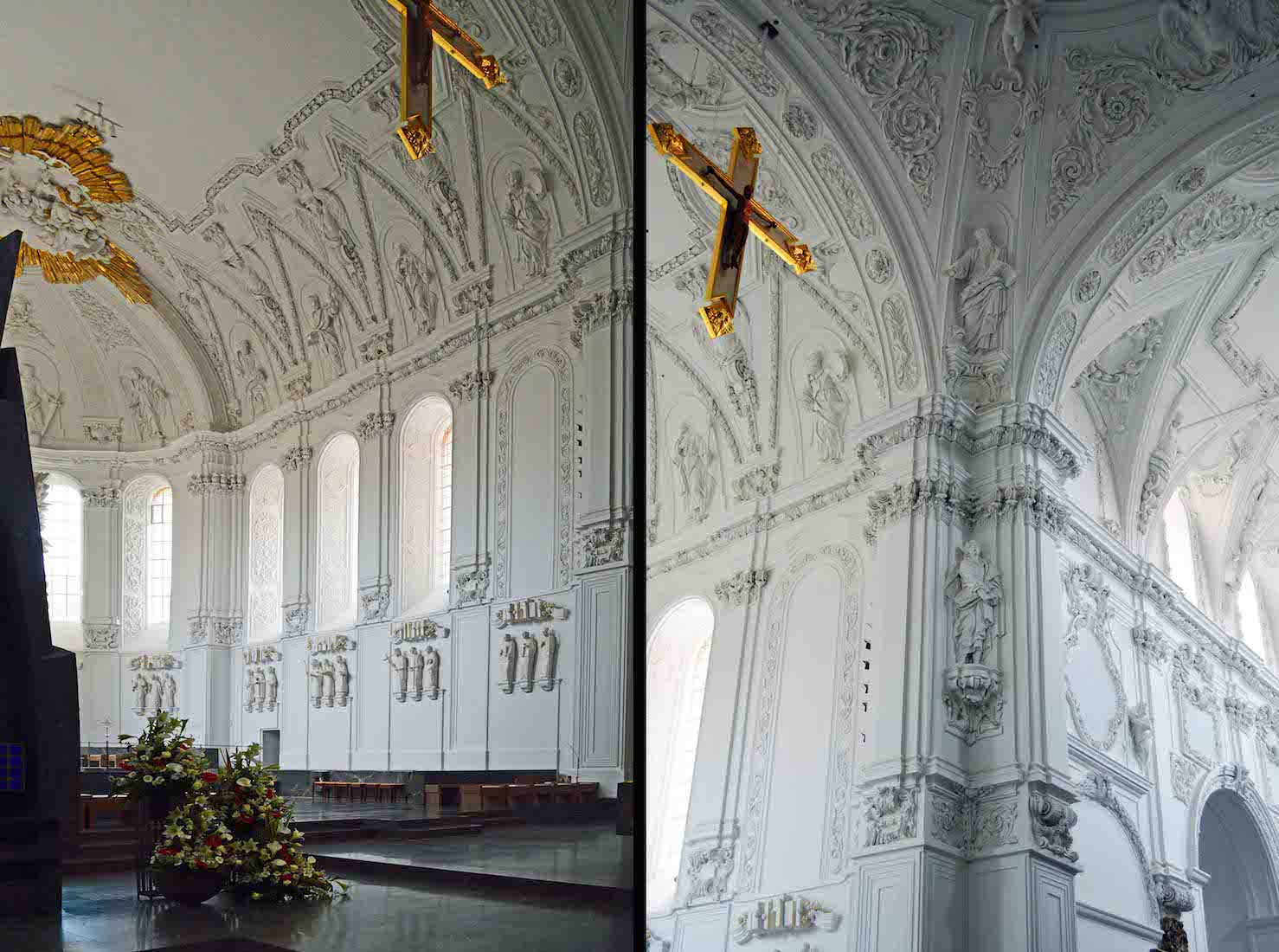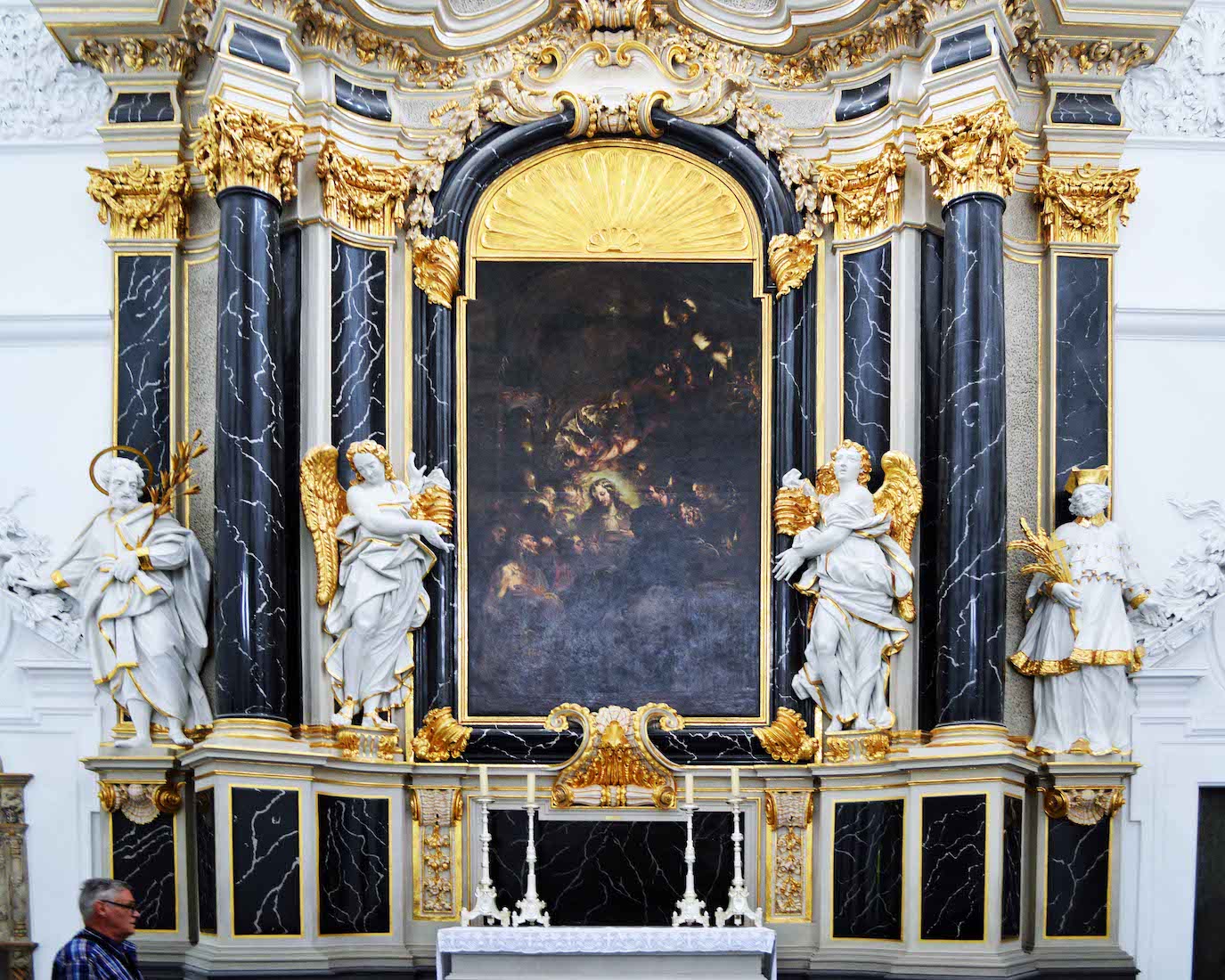
The Dean’s Altar [69] corresponds to the Provost’s Altar in the North transept, and is again by Pietro Magno (1704). The non-angelic figures here are Joseph (left) and John of Nepomuk. PLAN
102. ALTAR PAINTING
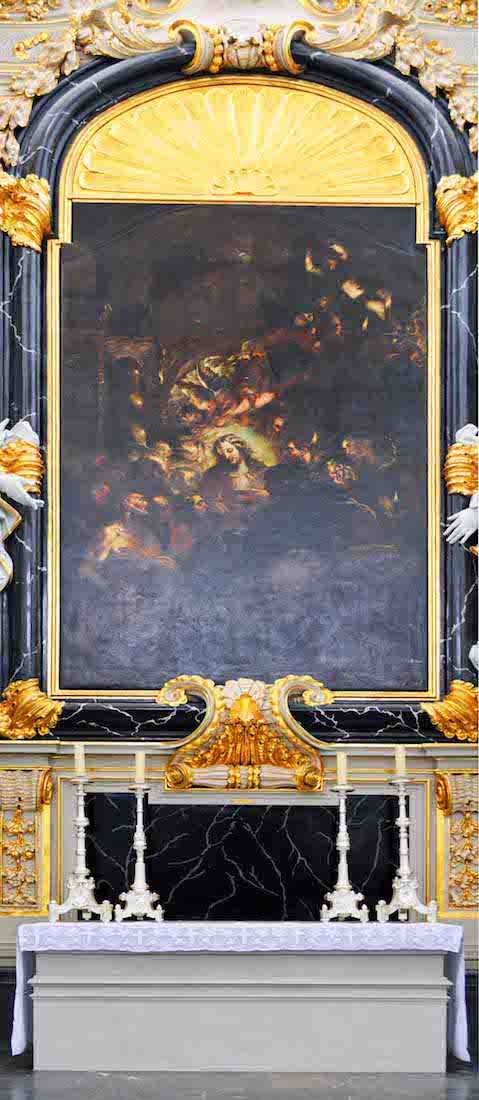
The altar itself is quite simple. Behind it is a painting of The Last Supper, executed by Johann Andreas Wolff (c 1700), on loan from the Parish Church of Rannungen.
103. ALTAR ENTABLATURE
At the top the altar structure is surmounted by a cross, with figures of the prophets Jeremiah (left) and Isaiah at the sides. The coat of arms belongs to Cathedral canon Georg Heinrich von Stadion († 1716).
104. MEMORIALS AND PAINTING
On the West wall we find the stucco epitaph of Cathedral canon Georg Heinrich von Stadion [70] († 1716). The painting is of the Annunciation [79] by Oswald Onghers (c 1700), and is on loan from the St Josef Parish Church in Schweinfurt. Next is the tomb memorial of the young Count Bernhard von Solms [76] († 1554).
106. WESTERN CRYPT
As early as 1699-1700 the Western portion of the crypt had already lost its vaulting. In 1962-63 renovations it was equipped with a flat roof. Here a steel altar by J. Lenssen (2012) partially covers a medieval wellhead.
107. CRYPT ITEMS
The central cross with the head of a man dates from c 1000, and is the oldest preserved structure in Würzburg. In side rooms are the Roman column with Cross, and the 16th century Mother of God figure.
108. EASTERN CRYPT
The triple-aisles Eastern crypt area has shallow vaulting. It contains the tomb of Bishop St Bruno († 1045), and the St Vitus fountain. Above the tomb is a wheeled chandelier by Max Walter (1989).
109. CROSS AND THORNS
Beyond St Bruno’s tomb is a sandstone altar by Helmut Weber (1966) and a bronze crucifix by G. H. Brücker. An unnamed metal sculpture stands nearby.
110. CRUCIFIX AND TOMB
The North room of the Crypt is now the Bishops’ Burial Ground in which Bishop Josef Stangl was laid to rest. Above the grave sites three paintings by Jaques Gassman take up the theme of the Resurrection (2012). On the East wall is a crucifix by Ernst Singer (1992).
111. LIST OF BISHOPS
By the graves is this interesting list of past Bishops with their years of office, dating from 742. What a long history!
112. OLD CARVINGS
The crypt contains many old carvings ...
113. STATIONS OF THE CROSS
... and old Stations of the Cross.
114. NEW ART
As well as ancient stones from the past, more modern depictions of the crucifixion are on display.
115. SEPULTUR
We leave the crypt and return to the South transept. As mentioned earlier, a doorway from this transept leads to the Sepultur, shown here. [Cathedral photo] This is the Cathedral canons’ burial chapel. I am unsure whether this area is generally open to the public.
117. CENTRAL ALTAR
The central altar [60] was designed by Schilling, set in a surround of dark grey Lahn marble. As a consequence of Vatican II in the early sixties, every cathedral has a central or nave altar from which the Sacraments are administered.
118. CROSSING ROOF
The Crossing roof is a wonderful display of ornate white stucco and a gold centrepiece.
119. CRUCIFIX
The Cross in the choir arch [60] has the symbols of the Four Evangelists at its ends, and bears a life-sized carving of Christ from Italy (c 1300).
120. SOUTH SANCTUARY
The stuccoed walls of the Sanctuary contain a wealth of detail, yet the overall effect is one of simple beauty. I am assured the Bishop’s Cathedra stands in this area, but I have been unable to locate it!


